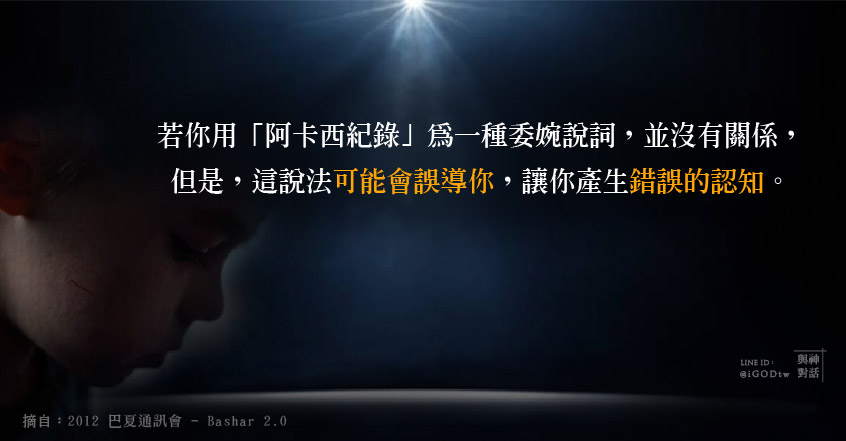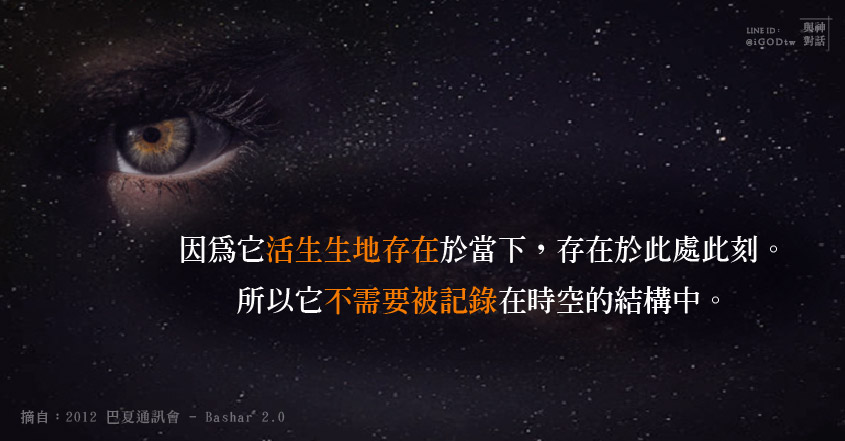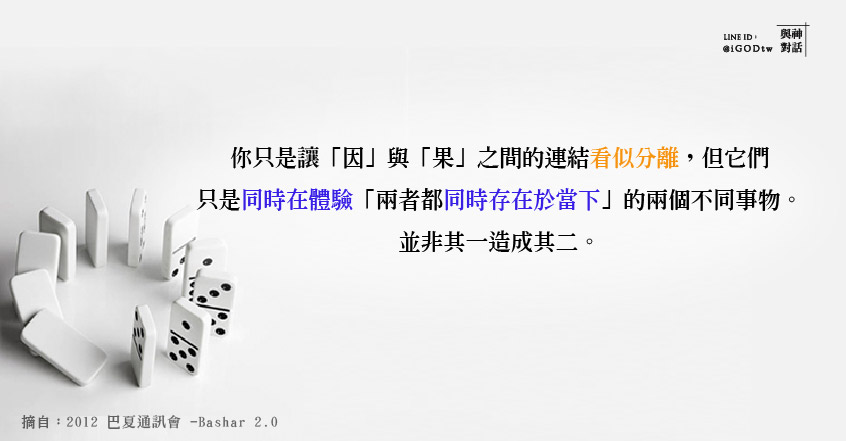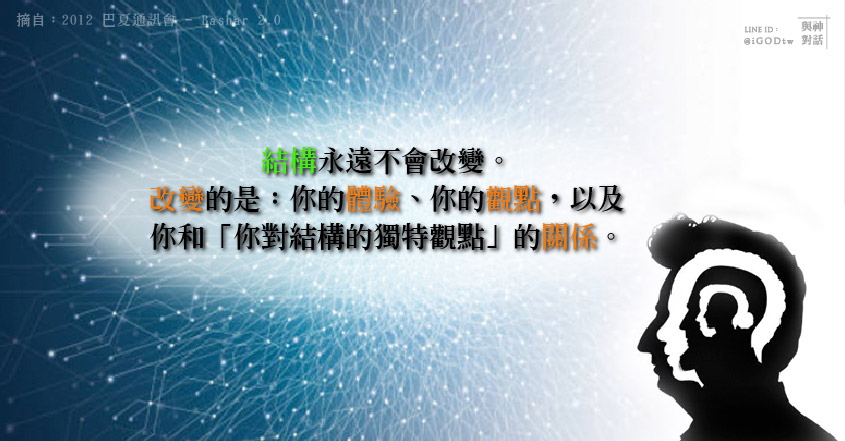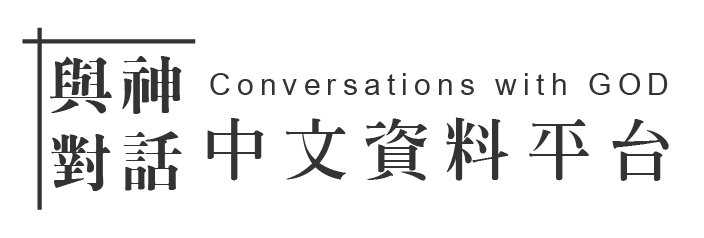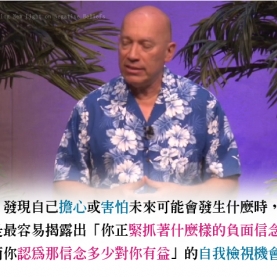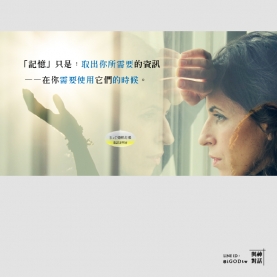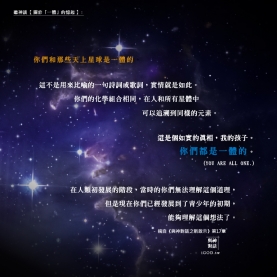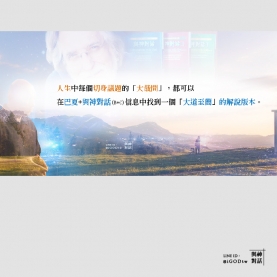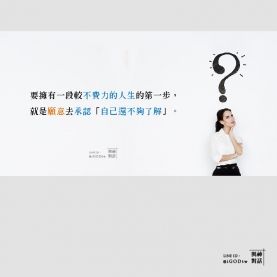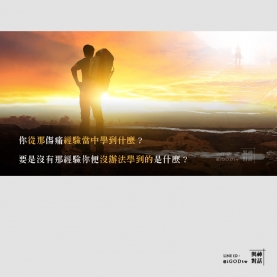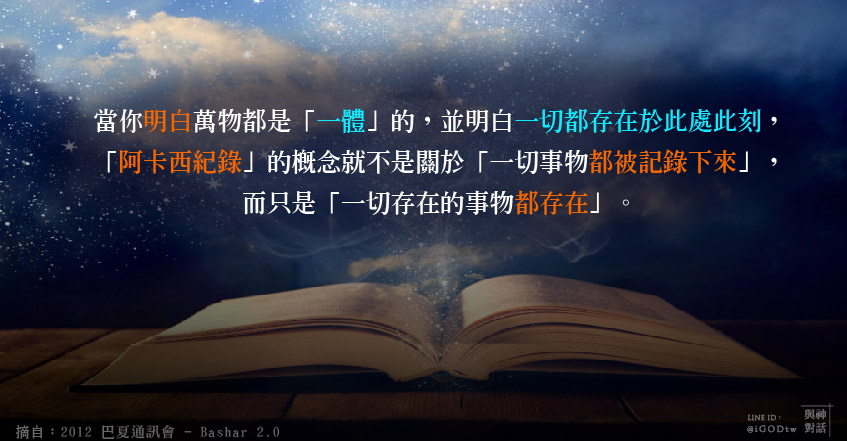
我們最近談論了你們的形而上學界已有一段時間相當受歡迎的概念,也就是你們所謂的「阿卡西紀錄」。
Oh, sounds impressive.
喔!聽起來讓人印象深刻。
But the idea really is that the way you refer to these things. The way you refer to this concept.
但是我們所談的概念其實是:你們看待這些事物的方式,你們談及這「阿卡西紀錄」的觀念。
"Akashic Records"actually brought about the question from an individual on your planet as follows.
「阿卡西紀錄」曾真的被一位你們地球上的人向我提出這樣的問題:
"Bashar."
「巴夏」。
"Yes", I said.
「是的」,我回答。
"Can anyone access the Akashic Records?"
「有任何人能夠取得阿卡西紀錄嗎?」
"Are you able to access the Akashic Records?"
「你能夠取得阿卡西紀錄嗎?」
Thus then, when the question is presented this way, it demonstrates very clearly that the way you're actually defining this concept, creates a sense of separation, as if the Akashic Records was somehow, some repository, somewhere out in the universe, so and some dimensional plan that you need some special keys to unlock and access.
就是這樣在問。當這問題以此方式被提問,便很清楚地說明了「你們實際是如何在定義這概念」(如何在定義「阿卡西紀錄」)——創造出一種「分離」的意思,好像在說阿卡西紀錄是以某種方式被貯藏在某處,遠在宇宙中的某地方,你需要某維度的藍圖和特別的鑰匙才能打開而獲取。
Think about this for a moment:
思考一下這一點:
In light of what we've already started to talk about here. If you understand that everything is ONE, and you understand that everything is Here and Now.
鑑於我們在此已說過的,如果你了解萬物都是「一體」的,並明白一切都存在於此處和此刻。
Then it isn't about the idea of everything that happens being recorded. It's simply the idea that everything that exists, exists.
那麼,這概念就不是關於「一切事物是否被記錄下來」,這概念只是「一切存在的事物都存在」。
Here and now, and therefore, of course, you have access to all that information.
一切都存在於此處和此刻,因此,當然,你有獲取所有資訊的管道(可以取得所有資訊)。
Not because it's recording somewhere, but because it's here and now alive in present time.
並非因為它被記錄在某處,而是因為它活生生地存在於當下,存在於此處和此刻。
It doesn't need to be recorded in the fabric of space and time.
它不需要被記錄在時空的結構中。
It is the fabric of space and time. It is the here and now.
它就是構造出時空的建構物。它是此處和此刻。
It's simply other versions, other perspectives of the ONE, of the Here, of the Now.
它只是「一」(一體)的其他版本、其他觀點,它只是「此時此處」的其他版本、其他觀點。
So, by using the term "Akashic Records", it's alright as an euphemism, but you see it can mislead you.
所以說,若你用「阿卡西紀錄」為一種委婉說詞,並沒有關係,但是,你明白嗎,這說法可能會誤導你。
It can create the misunderstanding that this somehow is a repository, existing somewhere in the infinite depth of space and time.
它會產生錯誤的認知,讓你們誤以為它應該是某種寶庫,存在於無垠時空深處中的某處。
How do we find it? And how do we access it?
我們如何找到它呢? 我們如何接近它呢?
You're looking out there for it; you're looking up there for it; you're looking down there for it, you're looking over there for it; you're thinking of something that is recorded after the fact.
你在向外尋找、你在仰望尋找、你在俯視尋找,你到處在找尋它。你認為它是事實發生後被記錄下來的東西。
As might happen in your technology or something is happening, and you're using your camera and tape to record something, and then you can play it back after the fact.
就如同發生在你們科技中的事情,你們運用相機和錄影帶記錄事實,並能在事件發生後重複播放它。
Of course, we know that that's an illusion too, because everything is happening here and now.
當然,我們知道那也是個幻覺,因為一切事物都存在於此刻和此處。
But you can create that linear illusion, that linear perspective, and its actually happening after the fact that there's a cause and an effect which there isn't.
但你可以創造出那線性的幻覺和線性的觀點,並認為事件的發生確實會有因果關係,而它卻不然。
But you can create the experience of the cause and the effect, for your own processing purposes, for your own satisfaction, for your own, shall we say, ability to appreciate Creation in a unique way.
但你可以為你自己的人生進展、個人滿足、個人目的,或這麼說吧,以獨特的方式欣賞體會造物主,等原因,創造「因果關係的體驗」。
You can create that cause and effect, but it doesn't really exist.
你可以創造那樣的因果關係,但它並不真的存在(因為一切,包括因果,都同時存在於當下)。
You're making those connections between things that appear to be separate, but are simply different coexisting simultaneously existing experiences that both exist at the same time. One did not cause to the other.
你只是讓那些「因」與「果」之間的連結看似分離,但它們只是同時在體驗「兩者都同時存在於當下」的兩個不同事物。並非其一造成其二(彼此間並非真的有因果關係,只是可以有因果的「體驗」)。
But you can make it seem as if one thing cause to another.
但是你可以讓它「看似」其一造成其二(看似彼此間具有因果關係)。
That's why we often say: "It's not about an end, in a sense, or a means to an end."
那也是為何我們常說:就某種意義上,不是關於「結果」,或某一手段(方法)達成某一結果。
The means and the end both coexist at the same. But if you make a connection between them, you can create that experience for your own gratification.
各種方法和結果是同時存在的。但若你將兩者連結在一起,你就能創造出那一「經驗」來滿足你自己。
The means and the end both coexist at the same. But if you make a connection between them, you can create that experience for your own gratification.
各種方法和結果是同時存在的。但若你將兩者連結在一起,你就能創造出那一「經驗」來滿足你自己。
But that’s simply a unique experience of things that exist simultaneously.
但那只是「事物都同時存在於當下」的一個獨特體驗。
And the thing that’s new, even though everything already exists as a structure, as a framework, the thing in a sense that is new is your experience of it, your perspective of it.
而所謂「新的」東西,即使一切事物已經以一種結構、以一種架構般地存在,那個新的東西,就某種意義上,只是你對它的(新)「體驗」和你對它的(新)「觀點」。
And that experience is the new thing, and that experience is what adds from your unique perspective, to the experience that All That Is having of itself in the here and now.
而那「體驗」即是新的東西,那體驗是從你獨特觀點中添加進來的「新的」東西,加進「一切萬有」在此處此刻對祂自己的體驗。
So, even though the framework exists, and in a sense, doesn’t change the experience of the framework does. And that’s what we mean when we say: “Everything changes.“
因此,就某種意義上,雖然架構存在,並不改變架構在做的體驗。而這也是當我們說「一切事物都在改變」時所說的意思。
It isn’t the framework changes; it isn’t the realities change.
在改變的並非架構(架構並沒有改變),在改變的並非實相(各種實相都已存在)。
All of that is laid out; all of that structure already exists and always will.
一切都已展現陳列在當下,所有的結構早已存在,而且會永遠存在。
That’s the fundamental structure of the Nature of Existence, and that’s why it’s easy to see, because it never shifts. It never changes.
這是「萬物存在的本質」的基本結構,這就是為什麼它不難被看見的原因,因為它永不轉變,它永遠不變。
The whole structure is always the whole structure, but the experiences, the perspectives, the relationship of your unique perspective to that structure is what changes.
整個結構永遠是整個結構,永不改變。但改變的是:你的體驗、你的觀點,以及你和「你對結構的獨特觀點」的關係。
That’s what we mean when we say: “Everything changes.“
這就是我們說的:「一切都會改變」的意思。That’s the Fourth law. It’s your experience, your perspective that changes.這即第四個法則(即:Everything changes, except the first 3 Laws.)
